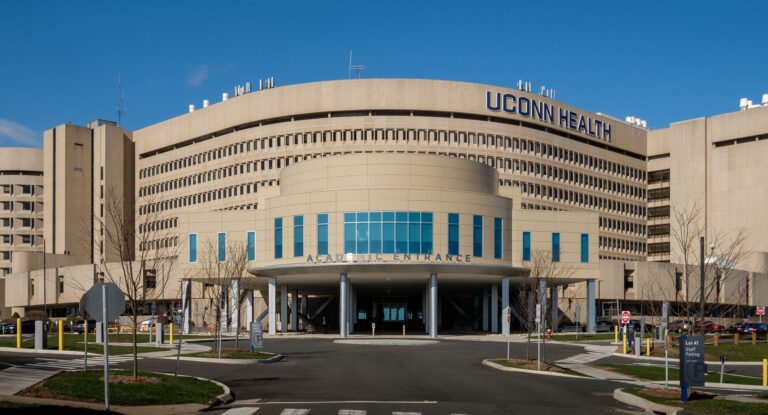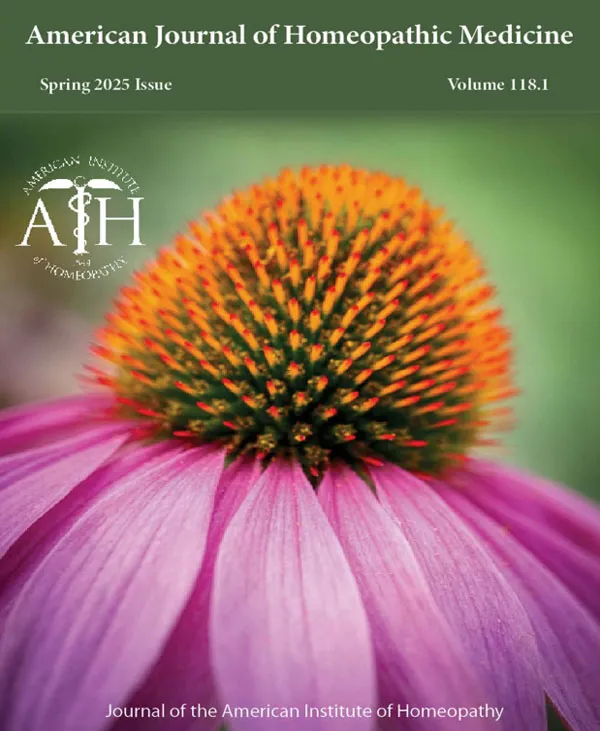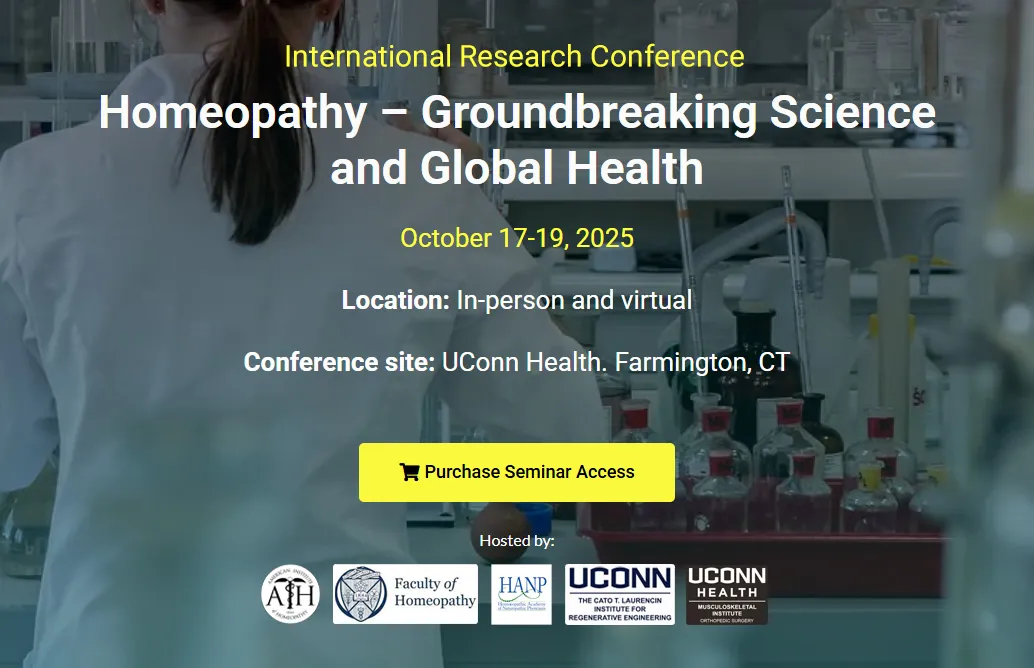
Letter to the World Health Organization
REGARDING THE EBOLA EPIDEMIC
December 4, 2014
Dr. Margaret Chan, Director-General
World Health Organization
Avenue Appia 20
1211 Geneva 27
Switzerland
Dear Dr. Chan,
On behalf of the American Institute of Homeopathy, the Board of Trustees and I would like to thank you for all of your work and leadership on global health matters, especially the current Ebola crisis.
We are writing you in regards to the World Health Organization’s refusal to permit an international team of homeopathic physicians to treat patients infected with the Ebola virus in a hospital in Monrovia, Liberia in October 2014. It is our understanding that the team of physicians had been officially invited by the Liberian authorities to treat patients in the Ebola treatment unit. We can understand caution regarding the use of unproven interventions in the treatment of patients with Ebola, but we want to inform you of some important facts.
Historical Use of Homeopathic Medicines in Epidemics
Homeopathic medicines have been used in the treatment of epidemic diseases for more than 200 years. Dr. Andra Saine, a Canadian homeopathic physician, has compiled a database of epidemiological data including more than 7000 historical references regarding the treatment of patients with epidemic diseases by homeopathic physicians. His data indicate that results obtained by homeopathic physicians during epidemics consistently reveal a significantly reduced mortality rate.1 As one example, during the 1849 cholera epidemic in Cincinnati, Ohio, USA, the mortality rate among 2,646 cholera patients (60-70 of whom were in a deep stage of collapse) treated homeopathically by Drs. Pulte and Ehrmann was only 1.32%.2 At that time, there was no other effective treatment of cholera, and the mortality rate of untreated cholera is approximately 50-60%.3 For further data on the use of homeopathic medicine in epidemic diseases, see Scientific Framework of Homeopathy – Evidence Based Homeopathy 2013, Chapter X.4 This document also provides information regarding the worldwide regulation and practice of homeopathic medicine as well as a review of research.
Homeopathic Medicine as Adjunctive Treatment
We recommend the use of homeopathic medicines in addition to the usual supportive treatment. Thus, patients treated with homeopathic medicine would not be denied conventional treatment. There is no contraindication to integrating basic supportive care with homeopathic treatment, and there are no known drug interactions between allopathic and homeopathic medicines.
Ethics of Using Unproven Interventions
At the October 22, 2014, National Institute of Health (NIH) Clinical Center Grand Rounds,5 Dr. David Wendler discussed the ethics of the use of unproven interventions during times of epidemics. He recommended that the use of such interventions may be considered if the following three conditions exist: 1) the disease has high mortality, 2) there is a short window of treatment, and 3) there are no proven treatments. All three of these conditions exist in the current Ebola epidemic. Thus, from the perspective of an NIH bioethicist, it is reasonable to consider the use of an unproven intervention.
Dr. Wendler also stated that clinicians should not be asked to provide interventions unless there is reason to think they might be beneficial. Given the extraordinary success rate when homeopathic treatment has been provided in other epidemics, we believe that it would be reasonable to investigate the use of homeopathic treatment for the Ebola epidemic. This perspective is especially reasonable because the patient will receive the usual supportive care and because homeopathic medicines have an excellent safety profile.
Dr. Wendler also discussed the importance of research to determine the efficacy of the unproven treatment. We wholeheartedly concur with this recommendation and are willing to work with a team from the World Health Organization to develop a research protocol to study the efficacy of homeopathic treatment. We also understand the expectation that efficacy of homeopathic treatment would need to be demonstrated beyond what can be achieved through supportive care alone.
We thank you in advance for your consideration of our request. We ask that the World Health Organization reconsider its position so that those persons suffering from the Ebola virus may have an increased likelihood of survival. We look forward to hearing your perspective, and we welcome an opportunity to discuss this important matter for the benefit of all.
Sincerely,
Irene Sebastian, MD, PhD, DHt
President, American Institute of Homeopathy
REFERENCES
- A. Saine. The Weight of Evidence: The Extraordinary Success of Homeopathy in Epidemics (to be published).
- B.F. Joslin. Homoeopathic Treatment of Epidemic Cholera. New York: William Radde, 3rd ed., 1854, 90.
- K. Todar. Vibrio cholerae and Asiatic cholera, in Todar’s Online Textbook of Bacteriology. Retrieved 12/2/14.
- M. Van Wassenhoven (Editor). Scientific Framework of Homeopathy — Evidence-Based Homeopathy 2013. Liga Medicorum Homeopathica Internationalis and European Committee on Homeopathy. 2013.
- NIH Clinical Center Grand Rounds. A.S. Fauci. Ebola in West Africa: The perfect storm; D.S. Chertow. Ebola: A ground level view from a treatment center in Liberia; D.S. Wendler. Ethical issues raised by the Ebola crisis. October 22, 2014. http://videocast.nih.gov/summary.asLive=15072&bhcp=1
Project of the Liga Medicorum Homeopathica Internationalis
Response to the Ebola Virus Disease Epidemic
Project Leadership
Dr. Renzo Galassi (Italy), President, LMHI
Dr. Altunay Soylemez Agaoglu (Turkey), Teasurer, LMHI
Research Team
Based on the historical use of homeopathy during epidemics, the study of the clinical course of patients infected with the Ebola virus, and interview data collected from Ebola survivors by Dr. Edouard Broussalian (Switzerland), the research team specified the homeopathic medicines that would most likely be needed during the treatment of patients infected with the Ebola virus. After completion of this research, Dr. Saine advised the clinical team of four homeopathic physicians regarding the clinical stages of the Ebola infection, characteristic symptoms, materia medica, posology, and prophylaxis.
Members of the Research Team:
Dr. Andra Saine (Canada)
Dr. Anton Roher (Austria)
Dr. Alok Pareek (India)
Clinical Team
After receiving an official invitation from Liberain authorities, the clinical team traveled to Monrovia, Liberia, in October 2014 in order to treat Ebola-infected patients at Ganta Methodist Hospital. After being trained in WHO safety protocols, the team was denied access to the Ebola Treatment Unit by a WHO representative. The team shifted their efforts to treat severely ill patients in the same hospital. The results of homeopathic treatment were so impressive that local physicians asked the leadership of LMHI to start a training program in homeopathic medicine at the hospital.
Members of the Clinical Team:
Dr. Edouard Broussalian (Switzerland)
Dr. Medha Durge (India)
Dr. Richard Hiltner (USA)
Dr. Ortrud Lindemann (Spain)
Letters to the World Health Organization
Both AIH and LMHI wrote letters of protest to the World Health Organization for their denial of access to the Ebola Treatment Unit by homeopathic physicians. Neither AIH nor LMHI received a response from WHO.
Latest News & Updates
Latest Issue of the AJHM
AJHM – Spring 2025
Volume 118 Number 1
Table of Contents
- Editorial: In this issue
- President’s Message: Our Guiding Precepts
- Homeopathic PuZZle?
- Alchemy, Spagyrics, and Homeopathy: Tracing the Threads of Energetic Medicine
- The Genius of Fluoricum acidum: Part One
- An Interesting Case of Kola
- Book Review: ‘Lessons in Pure Homeopathy, From the Writings of Hahnemann’s Best Student and Medicine’s Most Successful Practitioner, Adolph Lippe, MD’ – Edited & Annotated by A. Saine, ND
- Book Review: ‘Folkways and Homoeopathy: Our Ancestral Secret of Healing’ by Shailendra Ramchandra Vaishampayan





